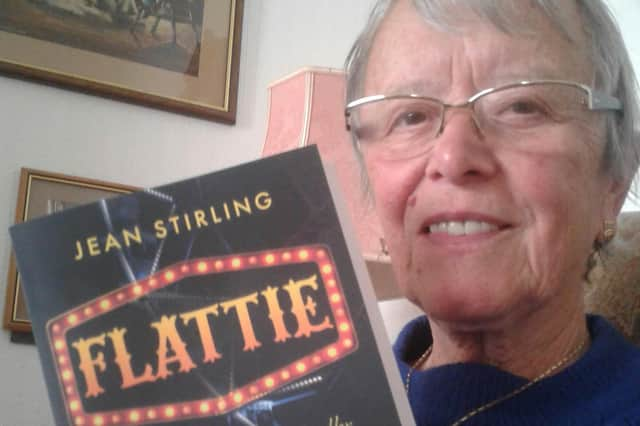Penicuik writer releases her memoir about growing up in a family of travelling showpeople


Now, she tells the story of how she lived and the culture of showpeople during the 1940s-1960s in her memoir ‘Flattie, Memories of a Reluctant Traveller’.
It is a funny, often sad, and at times, achingly poignant account of a time when fairs opened across Scotland at almost every highland games events and miner’s gala days.
Advertisement
Hide AdAdvertisement
Hide AdIntegral to the story is the description of Jean’s mother meeting her Dad, a serving soldier during WW2, not knowing he was a showman. As an incomer ‘Flattie’ – the term given by showpeople to anyone not born into the life – she would very quickly learn that the life was not all bright lights and candy floss.
The challenges of hauling everything – homes, families, and stalls from place to place, the hardships faced financially, environmentally and personally, is described in great detail and with brutal honesty.
Jean admits that many people may be surprised by her revelations of “another life” having worked in local Government for over 40 years with both Edinburgh City Police and then Lothian Social Work. She chose not to share her background with colleagues. “The unique culture and lifestyle of showpeople was not really understood. In some cases being classed as gypsies and viewed with suspicion,” she said.
Why, I asked, after so many years, had she decided now to write the memoir?
Advertisement
Hide AdAdvertisement
Hide AdShe replied: “The community of showpeople and their way of life, as with everything, has evolved and changed over the years. Funfairs are not as they were in the 50s/60s, the rows of small sideshows which ringed the waltzers, dodgems, chairoplanes, are seldom seen now. Large thrill-seeking machines are the norm, and the days of coconut shys, rifle ranges, dart stalls no longer seem to appeal to the public.
"The large wagons, previously homes to showpeople, have become museum pieces. Families now are living in chalets on communal sites and only utilising little caravans for convenience when pitched at fairs. They’ve become so well integrated into mainstream communities they are almost hybrid ‘flatties’! Young showpeople are now well-educated, many are university graduates and working in the legal, health and theatrical professions.
“I realised that members of my immediate family, and perhaps even the many younger generations of showpeople, might not remember or be aware of the earlier lives of travelling showpeople. I felt a sadness and sense of loss, accepting that things always have to adapt and change but often at a cost.”
Jean says that the life she was born into and people she knew, are almost like a lost tribe.
Advertisement
Hide AdAdvertisement
Hide Ad"I needed, almost as therapy, to record the uniqueness of that life and the sense of community, which still exists, but importantly, to pay tribute to our Mam, the ‘Flattie’.
“I hope people will not only be entertained and enjoy the book but will also have learned more about a community and lifestyle which sadly continues to be misunderstood.”
Jean will be donating any potential royalities from book sales to Cancer Research UK, and the Showmen’s Mental Health Charity. Her book is available on Amazon.